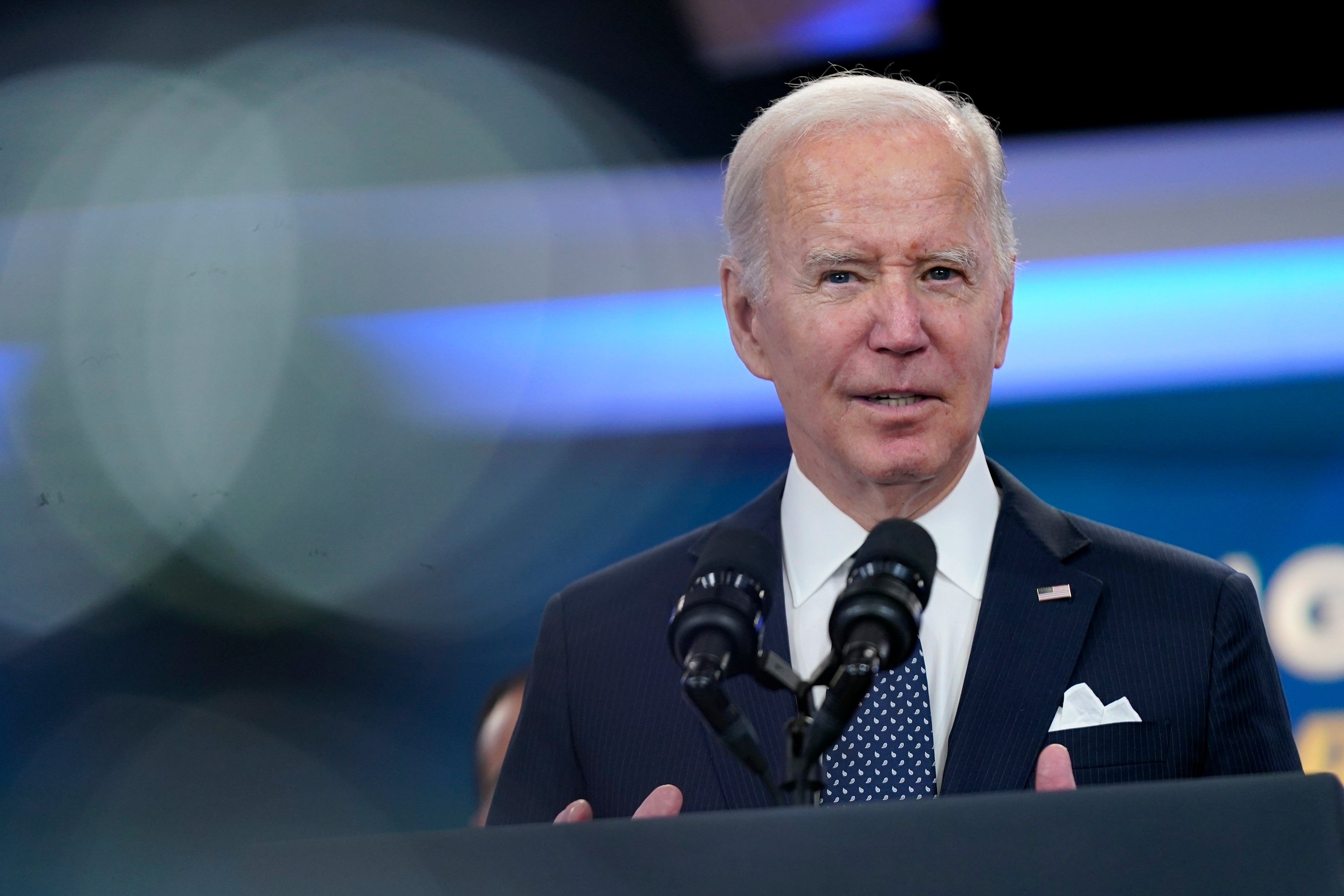White House, states tackle 'junk fees' that cost consumers
The White House has brought together state lawmakers, federal officials and others for a virtual meeting where participants traded ideas about how to fight “junk fees” that inflate the cost to consumers for everything from hospital visits and airline tickets to student loans and concert seats

Your support helps us to tell the story
From reproductive rights to climate change to Big Tech, The Independent is on the ground when the story is developing. Whether it's investigating the financials of Elon Musk's pro-Trump PAC or producing our latest documentary, 'The A Word', which shines a light on the American women fighting for reproductive rights, we know how important it is to parse out the facts from the messaging.
At such a critical moment in US history, we need reporters on the ground. Your donation allows us to keep sending journalists to speak to both sides of the story.
The Independent is trusted by Americans across the entire political spectrum. And unlike many other quality news outlets, we choose not to lock Americans out of our reporting and analysis with paywalls. We believe quality journalism should be available to everyone, paid for by those who can afford it.
Your support makes all the difference.The White House brought together state lawmakers, federal officials and others Wednesday to trade ideas about how to fight “junk fees” that inflate the cost to consumers of everything from hospital visits and airline tickets to student loans and concert seats.
The virtual meeting comes after President Joe Biden said in February that his administration would work with state and local officials to identify ways to crack down on such fees. A Government Accountability Office report from 2018 on event ticket sales found that primary ticket providers charged fees averaging 27% of a ticket’s price.
The director of the Consumer Financial Protection Bureau, Rohit Chopra, encouraged state lawmakers to use consumer protection laws already on the books.
“States can enforce a prohibition on certain abusive acts or practices,” Chopra said. “These words might seem like obscure legal concepts, but they’re really about making sure there’s fair market dealing that prices are upfront and clearly disclosed, but also that consumers have a chance to avoid those fees if they don’t actually want that service."
The bureau is the nation’s financial watchdog agency and was created in 2011 after the Great Recession.
Lael Brainard, who recently took the helm of the National Economic Council after serving as vice chair of the Federal Reserve, said a lack of transparency in pricing is bad for businesses and consumers because it encourages companies in the same industries to begin to hide fees in order to compete and creates a “race to the bottom."
“Excessive fees hurt the companies that want to be good actors and that want to price transparently," she said.
State lawmakers on the call shared examples of how they pursued efforts to eliminate specific junk fees.
Democratic state Sen. James Skoufis of New York talked about how he worked on legislation that eliminated junk fees in live entertainment ticketing by banning delivery charges on tickets that are emailed and profiting from tickets that were originally issued for free.
“There’s a lot more work to be done in this space,” Skoufis said.
The administration is pursuing elimination of added fees across the federal government.
Biden called on Congress to pass the Junk Fee Protection Act, which would target hidden fees in the entertainment, travel and hospitality industries. Earlier this year, the CFPB proposed a rule to limit credit card late fees, which would reduce typical late fees from roughly $30 to $8 for missed payments. It could go into effect as soon as 2024. The bureau estimates that would save consumers roughly $9 billion in late fees annually.
In February, the Federal Communications Commission published a proposed rule that, if finalized, would cap the cost of intrastate calls to and from people in jails and prisons.